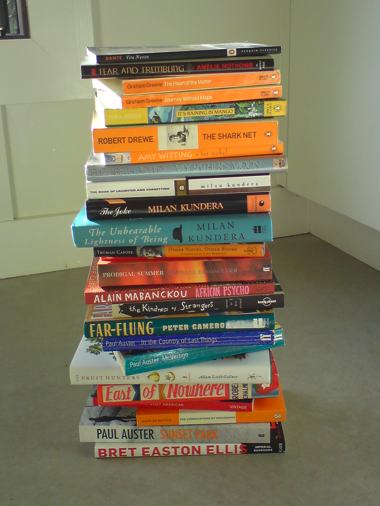This guest post is by Nick Baker of The Daily Encounters Blog.
The act of reading can be tricky, but also rewarding at the same time. The main setting of reading at a young age is in school, yet the reading of school books can sometimes be boring, and seem pointless. This is one reason why we stop reading once we get out of school—we think back to how reading all those educational books was boring, which in turn gives us no motivation to read books when we no longer are forced to.
This lack of motivation to read once we grow older stops us from benefiting from the many advantages reading provides to us. Reading is able to make you more valuable as a person in many ways: as an employee, as a friend, and as an innovator.Employers rarely ask people if they read or what their favorite books are while they conduct an interview. That doesn’t mean that your next boss can’t tell whether or not you read, or that you can’t find an opportunity to bring up books you have read.
Vocabulary is one way people can tell if you read. The more you read, the broader your vocabulary gets—as long as you have the motivation to look up what words mean when you come across words you don’t know. You can use your vocabulary in conversation with employers or business associates to show them you’re knowledgeable. You can even intimidate them with your extensive vocabulary!
Reading books that are centered on your area of business is a great way to boost your career and give you an advantage over others, making you more valuable to your company. Of course, being more valuable to your company puts you in a better position to get a raise or promotion.
Reading can also be used as a social tool either to make friends, or to further your friendship with current friends. Reading provides you with insight into other cultures whose people have different backgrounds and personalities. It can help to make you more confident in talking to people from different places, with different interests, since you’re more knowledgeable thanks to your reading.
Along with broadening your knowledge of other cultures, reading always gives you something to talk about with other people, whether you’re discussing a book you’ve read with someone who’s read it or is interested in it, or talking about world or local events you’ve read about in newspapers or magazines.
Innovation is spurred by thought and creativity, both of which reading amplifies in the brain. No matter what book you’re reading, your brain is working hard and new ideas are always popping up. Fantasy books can lead your brain to think of more out-of-the-box ideas, whereas biographies and documentaries can spur an idea in your head to follow someone else’s example.
Reading has always had a place in society as a learning tool; however, the learning from books does not have to stop once we leave school. Books always hold valuable lessons that can advance you in certain aspects of your life—as long as you maintain reading a part of your daily activities.
Nick Baker also writes a Blog about Daily Improvement which gives its readers daily articles on simple things they can do every day to make them happy and improve their life.











Recent Comments